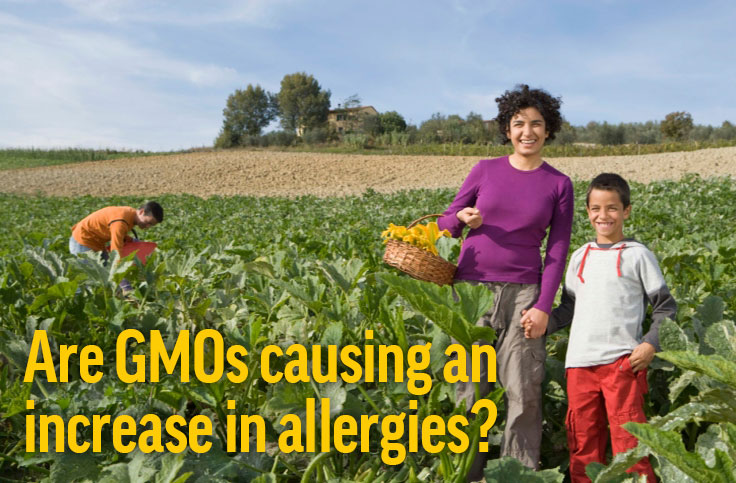Week #2 – Are GMOs causing an increase in allergies?
Top Consumer Questions about GMOs
View All as One Page
Lisa Katic, RD, shared her perspective on this question and explains that “No commercially available crops contain allergens that have been created by genetically engineering a seed/plant. And the rigorous testing process ensures that will never happen.”
In another post, Lisa goes on to say, “food allergies are mainly caused by eight major foods (milk, eggs, peanuts, tree nuts, soy, wheat, fish and shellfish) and account for about 90 percent of reported food allergies in the United States. First, it is important to note that only one of these eight major allergens listed above is a potential product of biotechnology, and that is soy. Of the remaining seven allergens listed, none is commercially available in genetically modified varieties.”
It is important to remember that if a person is allergic to a non-GM plant, he or she will also be allergic to the plant’s GMO counterpart. But GMOs do not introduce any new allergens. In fact, researchers, academics and companies are working on new GMOs that have the potential to help people in this area—for example, peanuts with very low allergen levels that have the potential to eliminate life-threatening allergies to peanuts. More information is available here and here.
Additionally, the U.S. Food and Drug Administration explains, “Evaluating the safety of food from a genetically engineered plant is a comprehensive process that includes several steps. Generally, the developer identifies the distinguishing attributes of new genetic traits and assesses whether any new material that a person consumed in food made from the genetically engineered plants could be toxic or allergenic.”
If you have more questions about GMOs and allergies, check out these answers:
- What are the effects of GMOs on the human body? Has GMO foods led to an increase in the development of allergies among certain groups of people?
Answered by Connie Diekman: http://gmoanswers.com/ask/what-are-effects-gmos-human-body-has-gmo-foods-led-increase-development-allergies-among-certain - Is there good evidence that inserting genes of allergenic organisms into those that dont normally contain them will not cause allergic reactions in people sensitive to specific allergens, e.g. soy?
Answered by Lisa Katic: http://gmoanswers.com/ask/there-good-evidence-inserting-genes-allergenic-organisms-those-dont-normally-contain-them-will




